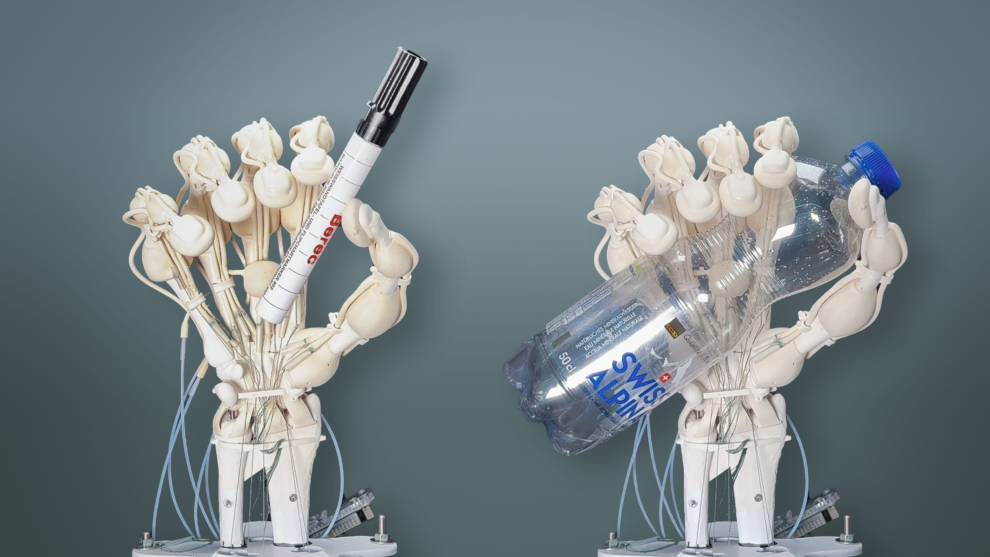This monthly round-up brings you the latest stories from the world of technology. Top technology stories: 3D-printing breakthrough for robotics; New US plan for space regulation; Smartphone sales rise for first time in over two years.
- Researchers successfully 3D print hand with bones, ligaments and tendons
For the first time, researchers have successfully printed a robotic hand complete with bones, ligaments and tendons made of different types of polymers. The breakthrough was possible thanks to a new laser technique.
Researchers ETH Zurich, who conducted the work, believe it opens up new possibilities for the production of robotic structures that combine soft, elastic and rigid materials.
“Robots made of soft materials, such as the hand we developed, have advantages over conventional robots made of metal. Because they’re soft, there is less risk of injury when they work with humans, and they are better suited to handling fragile goods,” ETH Zurich robotics professor Robert Katzschmann explained.
- White House announces new proposal for space regulations
The US administration has announced a proposal to split regulatory powers for private-sector space activities between the transportation and commerce departments.
The draft legislation would expand the Federal Aviation Administration (FAA) and the Department of Commerce’s oversight of key areas. The FAA would see its remit expanded to cover areas including the licensing of crewed and uncrewed activities in space. Meanwhile, the commerce departments would have greater responsibility for various uncrewed spacecraft, including in-space servicing spacecraft.
The proposal is in response to a global treaty that requires countries to authorize and supervize the space activity of non-government bodies.
- In brief: Other tech stories to know
Researchers at MIT have developed a new process to create fuel from carbon dioxide. The new approach turns CO2 into formate, a solid fuel, that could be used to heat homes or in industry. A new floating desalination machine, powered exclusively by waves, could help in the drive to create fresh water from salt water while avoiding the use of fossil fuels, the device’s inventors say.
The European Space Agency has announced a new rocket, the Ariane 6, has passed a key rehearsal ahead of hopes for a debut flight next year. Ariane 6 is a joint venture between Airbus and Safran. Mobile data traffic in Europe is set to triple in the next five years, industry group GSMA announced on 23 November.
It comes as new data shows the global smartphone market grew in October, the first month of year-on-year growth since mid-2021. Sales have been hit by a number of issues, Counterpoint Research said as it released the data, including component shortages. Resonac, the Japanese chip materials producer, has announced plans for an R&D centre in the US’s Silicon Valley.
- More on technology on Agenda
The raw materials for modern technology – and the innovations of the future – can be rare and difficult to extract. Urban mining could help tackle this and improve the sustainability of technology by extracting these sorts of material from waste. Read our explainer to learn more. Japan’s share of the global semiconductor industry has declined since the 1990s, but the government is working to boost domestic production. Read more about the steps they’re taking to maintain and strengthen the local semiconductor industry.
What’s next in the electrification of transportation? Olivier Rabiller, President and CEO of Garrett Motion, explores the variety of technological options available – from battery electric vehicles to hybrids and plug-in hybrids.
Source: World Economic Forum
















